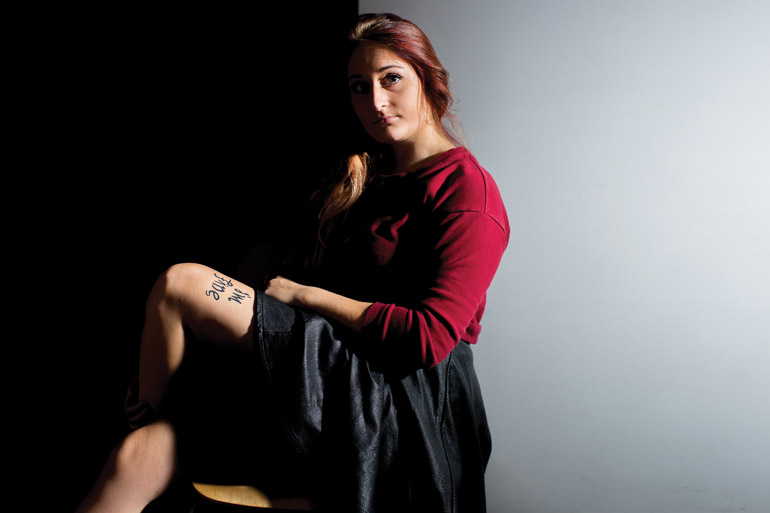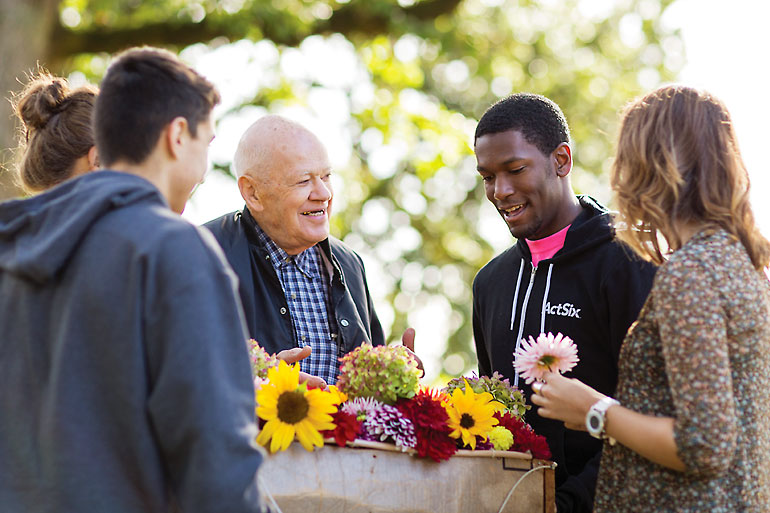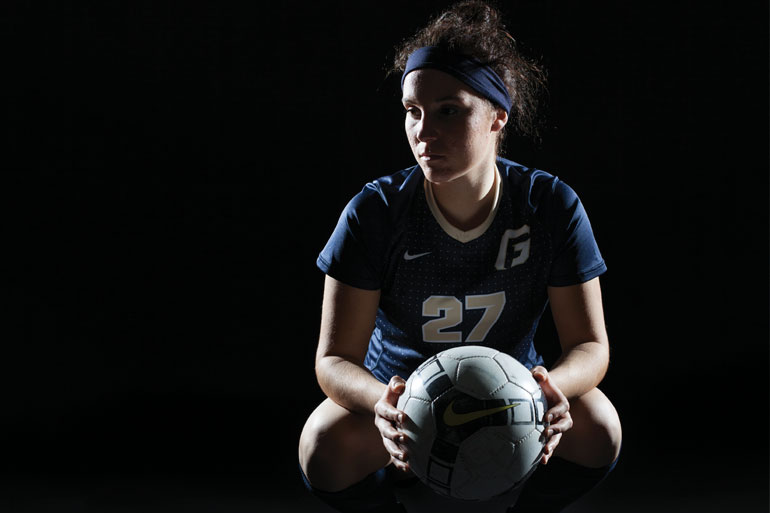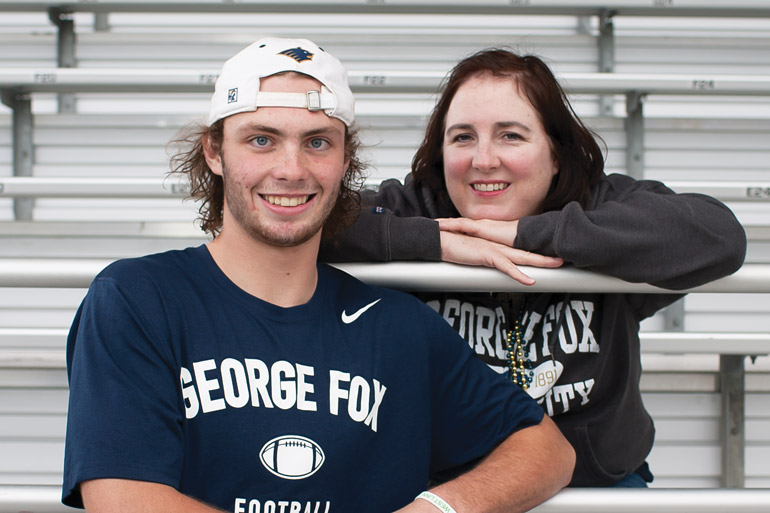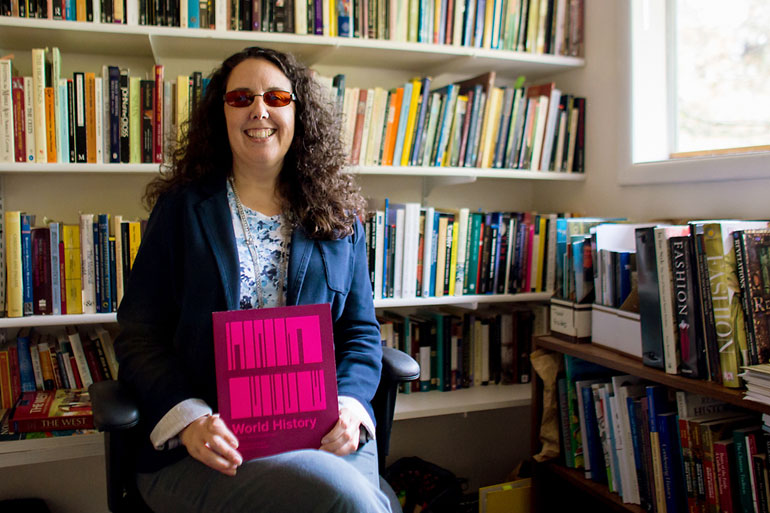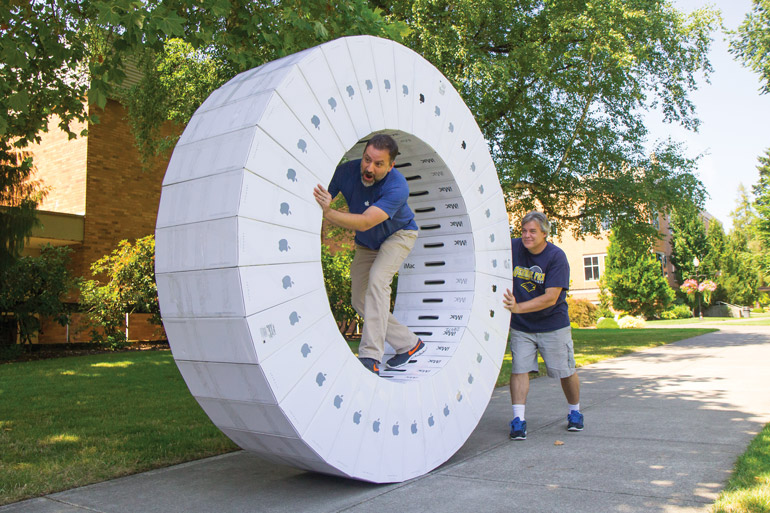
Communication Breakthrough
Professor Kevin Jones and his students are giving at-risk middle schoolers communication tools to better cope in their world – one relationship at a time
By Sean Patterson
Two years ago, as communication arts professor Kevin Jones began planning for his sabbatical, he came to a crossroads. He could travel the usual route – do research, publish a paper or write some articles – or he could try putting some of his communication expertise to work in a real-world setting.
Jones opted for the latter, and he launched his plan by contacting Newberg High School and asking the question, “If you could have my services for one semester, what would you have me do for your students?” The answer: Volunteer to work with ninth-graders who are considered “at risk,” in jeopardy of dropping out. Upon accepting the invitation during the 2014-15 academic year, Jones discovered proof of a long-held theory: There is a direct correlation between at-risk kids and communication deficiencies.
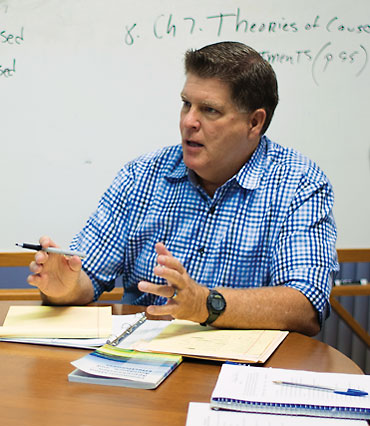
Jones used his sabbatical to develop a practical program aimed at helping local youth with their communication skills.
“Given that, I thought, ‘Let’s explore this. If we can correct these deficiencies, maybe we can bring down that at-risk category a bit,’” Jones surmised. “Perhaps, if we give these kids some communication tools for their toolbox, they will be less inclined to act out and will be able to better read others and interact with them, whether in a classroom setting or on a personal level.”
Jones took his plan a step further in the spring, when he volunteered to teach 16 at-risk middle schoolers at the Springbrook Education Center, an alternative school in the Newberg School District. He was encouraged when, at semester’s end, the class showed a 10 percent increase in communication skills based on an assessment test he administered.
But Jones wasn’t quite satisfied. Fall was approaching, which meant a return to the classrooms at George Fox. What could he do to continue helping these kids? That’s when the idea hit him: Develop a senior capstone course that would take his communication majors into Springbrook’s middle-school classroom for one-on-one mentoring.
He gave his senior capstone students the option to write a research paper or volunteer to mentor seventh- and eighth-graders twice a week for a semester. The vast majority chose to work with the youth.
“Not only are we coming in here to get to know kids and be a mentor for them, we’re applying the communication lessons we’re learning in class to a real situation,” says senior communication arts major Morgan McGuire (pictured above). “This is ideal for me, because I hope to work with youth either as a youth pastor or perhaps a school counselor. Beyond that, you’re there for these kids as they go through some pretty tough stuff in life.”
During the fall 2015 semester, nine George Fox students are paired with nine middle schoolers. The mentors get to know the kids on a personal level while also testing them for communication deficiencies. The results will then be used to help Jones’ students develop curriculum that outlines exercises and strategies to address students’ communication struggles.
“At first some of our students were apprehensive, asking things like ‘Why us? What’s wrong with us?” But as they got to know Kevin and the students, they realized they were there to help, to engage, to care,” says teacher Connie Rice, who gives up two 45-minute blocks of her class time each week for the George Fox visitors. “One thing the kids have really resonated with is the idea of ‘ice words’ and ‘fire words’ – recognizing the importance of using affirming words that cool down a situation versus words that ignite a situation.”
Ultimately, Jones hopes to continue the program and expand it. He is in the process of writing a grant proposal that would help fund a service-learning center in the communication arts department, opening up new avenues for mentoring. “I’d love to see our students plug into the community and develop curriculum that will help these kids,” he says. “It’s a win-win situation, and it’s really what George Fox is all about – educating our students while giving back.”
Bruin Notes
- University Ranked Among ‘America’s Best Colleges’ for 27th Straight Year
- Professor Brings Computer Coding to Elementary School Classrooms
- Construction Roundup
- University Sets Enrollment Record for 26th Time in 29 Years
- New $180,000 Microscope Used in Cancer, Brain Research
- News Bits
- Women’s Golf Team Honors Fallen Soldier



